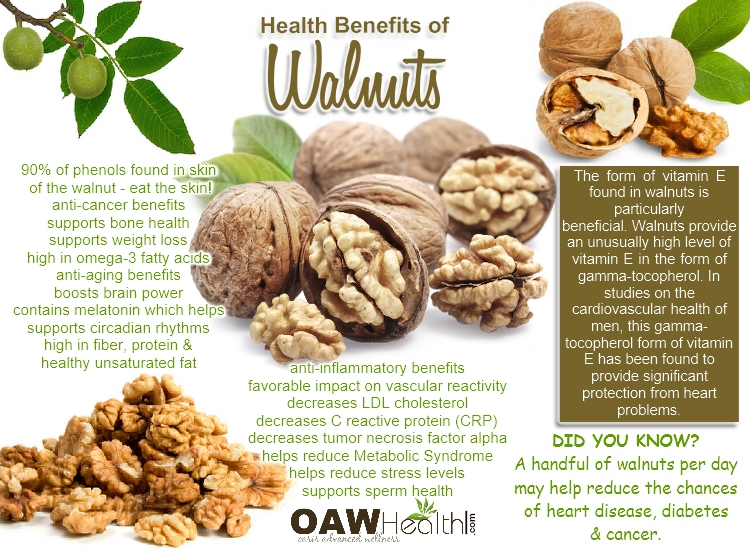
Outsmart Age-Related Cognitive Decline: The Protective Power of Walnuts
The relentless march of time affects us all, but the prospect of age-related cognitive decline casts a long shadow. Forgetfulness, slower processing speed, and difficulty with complex tasks – these are realities many fear. But what if we told you a simple, delicious, and readily available food could offer significant protection against these cognitive woes? Enter the humble walnut, a nutritional powerhouse packed with brain-boosting benefits.
The Walnut’s Winning Combination: Nature’s Cognitive Cocktail
Walnuts aren’t just a tasty snack; they’re a meticulously crafted blend of nutrients specifically beneficial for brain health. Their unique profile boasts:
- Omega-3 Fatty Acids (specifically ALA): These essential fats are crucial for brain structure and function, supporting cell membrane integrity and communication between brain cells. Think of them as the brain’s lubricating oil, keeping everything running smoothly.
- Vitamin E: A potent antioxidant, Vitamin E combats oxidative stress – a major contributor to age-related cognitive decline. It protects brain cells from damage caused by free radicals, preserving their vitality.
- Antioxidants: Beyond Vitamin E, walnuts are rich in various other antioxidants, creating a synergistic defense against cellular damage. This army of microscopic protectors keeps the brain’s defenses strong.
- Polyphenols: These plant compounds contribute to the walnut’s antioxidant power and also exhibit anti-inflammatory properties, crucial for a healthy brain environment.
Beyond the Nutrients: How Walnuts Work Their Magic
The benefits of walnuts aren’t simply additive; their components work together in a complex and synergistic manner. Research suggests that the combined effect of these nutrients contributes to:
- Improved Blood Flow to the Brain: Adequate blood flow is essential for delivering oxygen and nutrients to the brain. Walnuts’ beneficial fats contribute to healthier blood vessels, ensuring optimal brain perfusion.
- Reduced Inflammation: Chronic inflammation is linked to cognitive decline. Walnuts’ anti-inflammatory properties help mitigate this risk, promoting a calmer, healthier brain environment.
- Enhanced Synaptic Plasticity: This refers to the brain’s ability to adapt and form new connections. Walnuts support this crucial process, aiding learning, memory, and cognitive flexibility.
Scientific Support: The Evidence Speaks
The protective effects of walnuts aren’t just anecdotal; numerous studies support their role in maintaining cognitive health. While more research is always needed, existing evidence points towards a significant association between walnut consumption and improved cognitive function, particularly in older adults.
Incorporating Walnuts into Your Daily Routine: Simple Strategies for Brain Boosting
Adding walnuts to your diet needn’t be a chore. Here are some simple, delicious ways to reap their cognitive benefits:
- Sprinkle them on your morning cereal or yogurt.
- Add them to salads for a boost of healthy fats and crunch.
- Incorporate them into homemade trail mix for a convenient and nutritious snack.
- Use them in baking recipes for a subtle nutty flavor and added nutritional value.
- Enjoy a small handful as a standalone snack.
A Balanced Approach: Walnuts as Part of a Holistic Strategy
While walnuts offer significant cognitive protection, it’s crucial to remember that they are part of a larger picture. A healthy lifestyle encompassing regular exercise, a balanced diet rich in fruits and vegetables, sufficient sleep, and stress management is vital for optimal brain health. Consider walnuts a powerful ally in your quest for a sharp and vibrant mind.
Walnut Nutrition Facts (per ounce):
| Nutrient | Amount |
|---|---|
| Calories | 185 |
| Fat | 18g |
| Protein | 4g |
| Fiber | 2g |
Disclaimer: This article is for informational purposes only and does not constitute medical advice. Consult with a healthcare professional before making any changes to your diet or treatment plan.

Additional Information
Outsmarting Age-Related Cognitive Decline: A Deeper Dive into the Protective Power of Walnuts
While the headline “Outsmart Age-Related Cognitive Decline: The Protective Power of Walnuts” suggests a simple solution, the reality is more nuanced. The relationship between walnut consumption and cognitive health is complex and requires a deeper analysis beyond simple correlation. While promising research exists, it’s crucial to avoid oversimplification and understand the limitations of current knowledge.
Beyond the Hype: Mechanisms of Action
The purported neuroprotective effects of walnuts are not solely attributed to a single magic bullet. Instead, a synergistic interplay of bioactive compounds contributes to their potential benefits:
-
Polyunsaturated Fatty Acids (PUFAs): Walnuts are exceptionally rich in omega-3 fatty acids (particularly alpha-linolenic acid, ALA) and omega-6 fatty acids. ALA is a precursor to EPA and DHA, crucial components of brain cell membranes and vital for neuronal function and synaptic plasticity. DHA, in particular, is heavily implicated in cognitive function, memory, and mood regulation. However, the body’s conversion of ALA to EPA and DHA is relatively inefficient, so direct consumption of EPA and DHA-rich sources like fatty fish remains important.
-
Antioxidants: Walnuts contain a potent cocktail of antioxidants, including vitamin E, melatonin, and polyphenols. These combat oxidative stress, a major contributor to age-related neuronal damage and cognitive decline. Oxidative stress damages cellular components, leading to inflammation and impaired neuronal signaling. The antioxidants in walnuts help neutralize free radicals, thus mitigating this damage.
-
Vitamin E: This fat-soluble vitamin is a potent antioxidant that protects cell membranes from oxidative damage. Studies have linked adequate vitamin E intake to a reduced risk of Alzheimer’s disease and other age-related cognitive impairments. Walnuts contribute significantly to daily vitamin E requirements.
-
Other bioactive compounds: Walnuts also contain phytosterols, which may influence cholesterol metabolism and potentially reduce the risk of cardiovascular disease, a known risk factor for cognitive decline. Furthermore, they offer minerals like magnesium, which plays a crucial role in synaptic transmission and neuronal function.
Evidence and Limitations:
While numerous studies suggest a correlation between walnut consumption and improved cognitive function, establishing causality requires rigorous investigation. Many studies are observational, indicating an association but not proving walnuts cause improved cognitive health. Confounding factors such as overall diet, lifestyle (including exercise and sleep), and genetic predisposition must be considered.
For example, a study published in the Journal of Alzheimer’s Disease showed that individuals consuming walnuts as part of a Mediterranean diet exhibited improved cognitive performance compared to those who didn’t. However, the Mediterranean diet’s overall benefits (rich in fruits, vegetables, and healthy fats) confound the isolated impact of walnuts.
Furthermore, most studies focus on middle-aged and older populations. The impact of walnut consumption on cognitive development in younger individuals requires further investigation.
Clinical Significance and Recommendations:
While the evidence is promising, it’s crucial to avoid promoting walnuts as a miracle cure. A balanced and healthy diet, regular exercise, cognitive stimulation, and stress management are all vital components of maintaining cognitive health. Walnuts should be viewed as a valuable part of a broader strategy, not a standalone solution.
Current research doesn’t provide a definitive recommended daily intake of walnuts specifically for cognitive enhancement. However, incorporating walnuts as part of a healthy, balanced diet is generally recommended. The recommended daily intake of nuts, according to dietary guidelines, is a small handful (around 1 ounce). This can be easily incorporated into various meals and snacks.
Future Research Directions:
Further research is needed to:
- Clarify the specific mechanisms of action of different walnut components on cognitive function.
- Conduct randomized controlled trials to establish causality more definitively.
- Investigate the optimal dosage and duration of walnut consumption for cognitive benefits.
- Examine the impact of walnut consumption across different age groups and populations.
In conclusion, while promising evidence supports the potential neuroprotective benefits of walnuts, more research is necessary to solidify their role in preventing or delaying age-related cognitive decline. A holistic approach incorporating a healthy lifestyle, balanced nutrition, and regular cognitive stimulation remains crucial for optimal brain health. Walnuts, with their rich nutrient profile, should be considered a valuable contributor to this comprehensive strategy.
